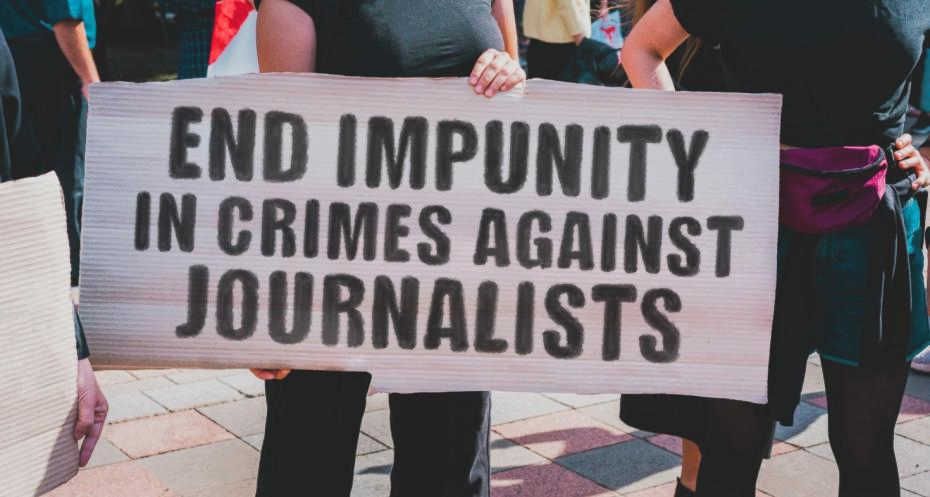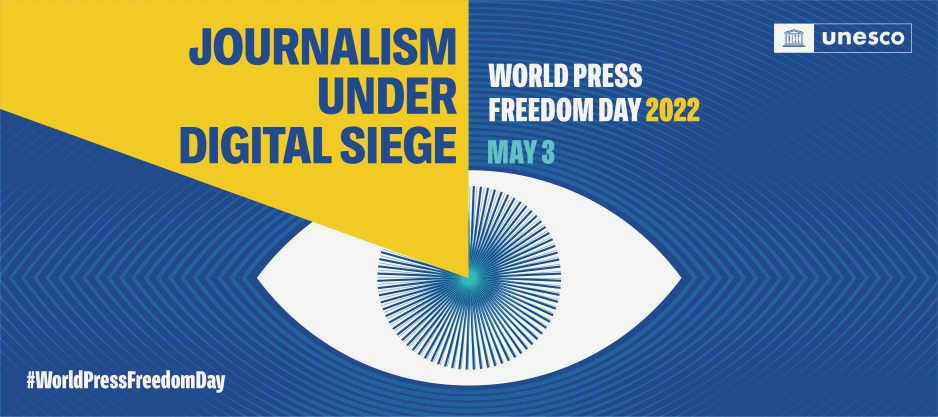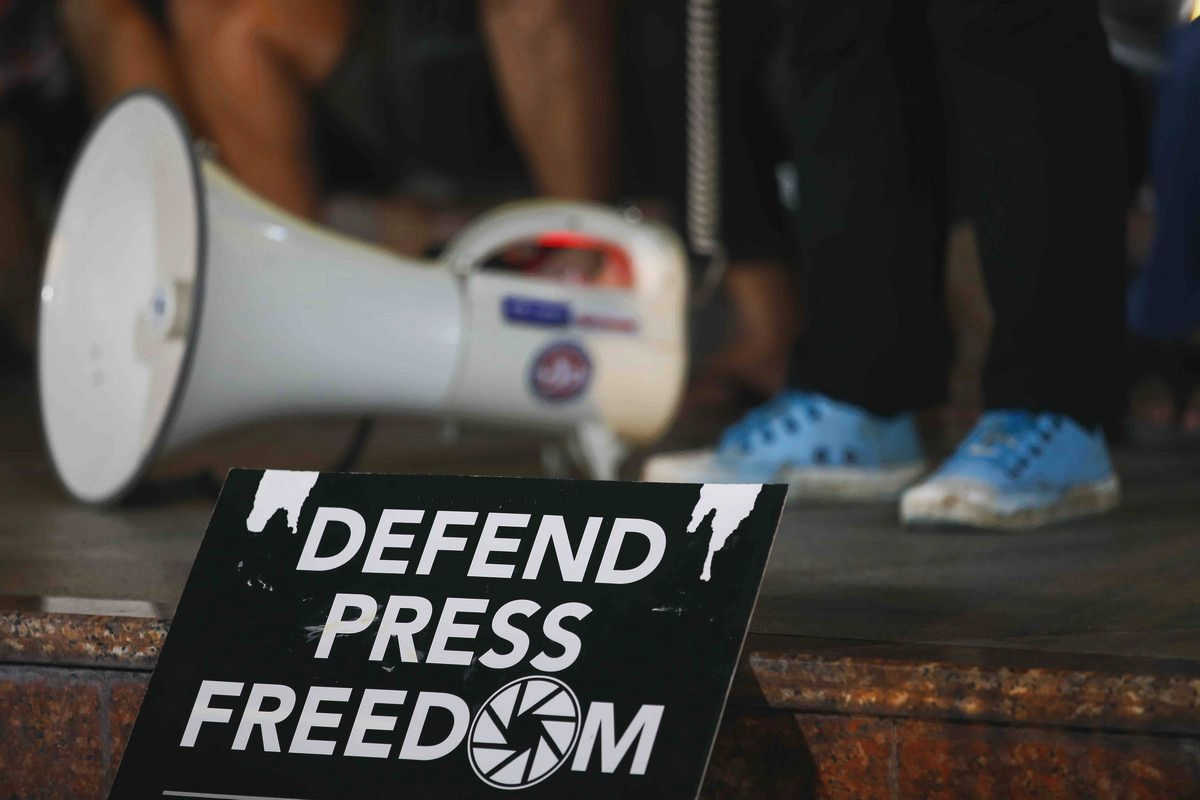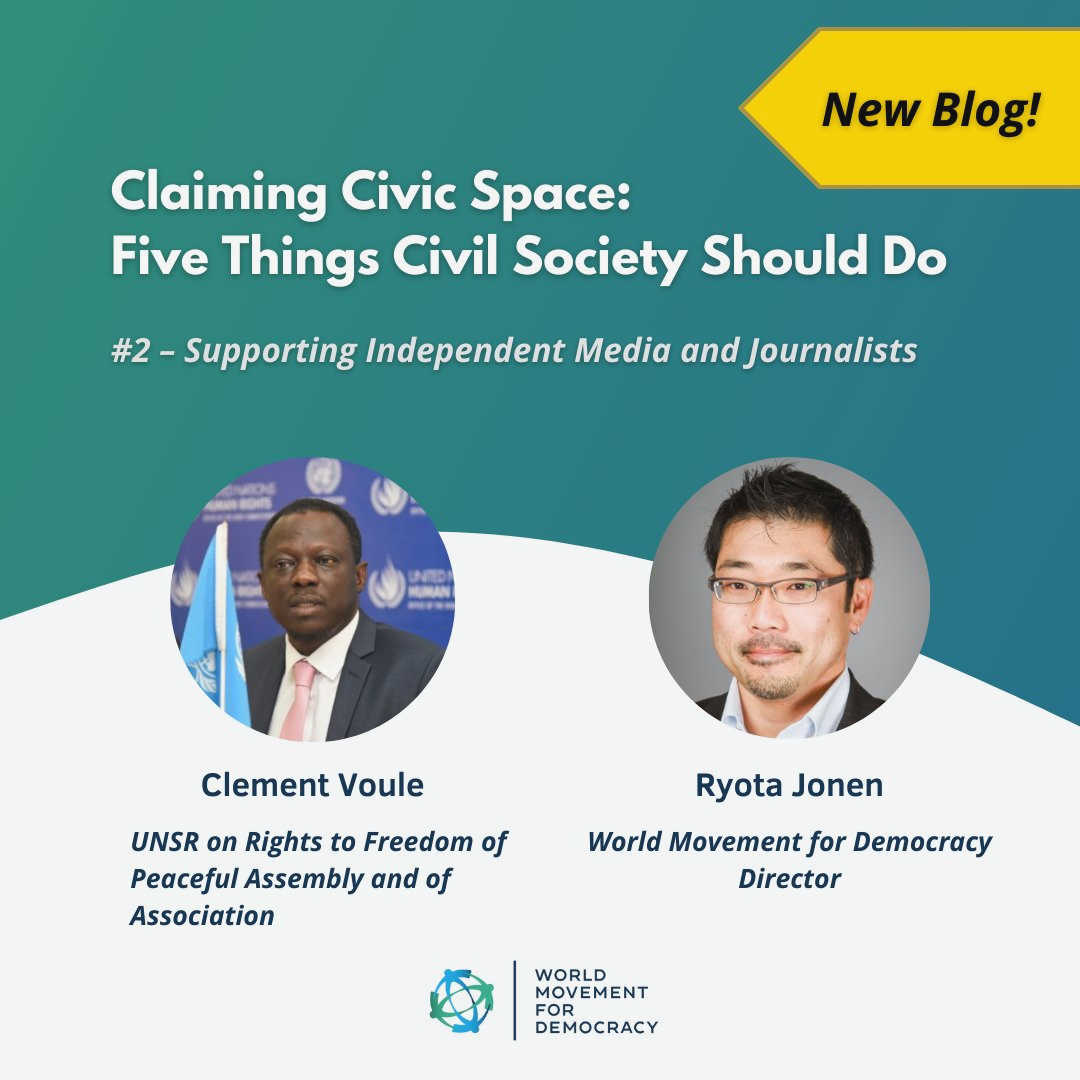Press freedom is a fundamental pillar of democratic societies, ensuring that citizens have access to accurate and unbiased information. However, journalists around the world often face threats, censorship, and harassment for their work. In many countries, governments and other powerful entities attempt to control the narrative and suppress dissenting voices. It is in these challenging environments that civil society plays a crucial role in defending press freedom and supporting independent journalism.
Civil society organizations, including non-governmental organizations (NGOs), advocacy groups, and media watchdogs, work tirelessly to protect the rights of journalists and address the challenges they face. They provide legal support to journalists who are facing harassment or legal threats, advocating for their safety and freedom of expression. These organizations also monitor and report on press freedom violations, raising public awareness about the importance of a free and independent media.
The role of civil society in defending press freedom goes beyond legal support and advocacy. They also work to strengthen the capacity of journalists through training programs and mentorship initiatives. By providing journalists with the necessary tools and skills, civil society organizations empower them to report on important issues, hold those in power accountable, and shed light on underreported stories. They also facilitate networking and collaboration among journalists, fostering a sense of community and solidarity in the face of adversity.
Furthermore, civil society organizations often engage in international advocacy to address press freedom challenges globally. They collaborate with other like-minded organizations, hold governments accountable for their actions, and pressure international bodies to take a stand against press freedom violations. Through their collective efforts, civil society organizations amplify the voices of journalists and ensure that their work remains vital in democratic societies.

The Importance of Press Freedom
Press freedom is a fundamental pillar of any democratic society. It plays a critical role in upholding the principles of transparency, accountability, and the rule of law. A free and independent press serves as a watchdog, holding those in power accountable and providing the public with accurate and timely information.
Press freedom allows journalists to investigate and report on issues of public interest without fear of censorship or retribution. It enables them to shine a light on corruption, human rights abuses, and other injustices. A free press is essential for a well-functioning democracy, as it allows citizens to make informed decisions and participate actively in the democratic process.

Furthermore, press freedom is closely linked to the right to freedom of expression. It ensures that diverse voices and opinions can be heard and provides a platform for marginalized groups and minority viewpoints. In this way, press freedom promotes inclusivity and pluralism, fostering a more inclusive and democratic society.
Additionally, press freedom is vital for economic development. Independent journalism plays a crucial role in providing information to investors, influencing economic policies, and promoting transparency in business practices. A free press encourages innovation, accountability, and fair competition, all of which are essential for a thriving economy.
In conclusion, press freedom is not just a privilege for journalists; it is a right that must be protected and upheld for the benefit of society as a whole. It strengthens democracy, facilitates the exchange of ideas, promotes transparency, and contributes to economic development. Without press freedom, societies would be deprived of a crucial safeguard against corruption and human rights abuses, and citizens would be denied their right to be informed and active participants in the democratic process.
Threats to Press Freedom
The freedom of the press is a fundamental pillar of democracy, but it faces numerous threats around the world. One major threat is government censorship, where authorities restrict or control the dissemination of news and information. This can take the form of strict regulations, biased reporting, or even outright censorship of critical voices.
Another threat to press freedom is violence and intimidation against journalists. Journalists who expose corruption, human rights abuses, or other sensitive issues often face violence or threats, making it difficult to carry out their work safely. They may be attacked by government forces, criminal organizations, or individuals who seek to silence them.
Economic pressures also pose a threat to press freedom. Media owners who prioritize profit over the public interest can undermine journalistic independence by controlling content or using financial leverage to influence reporting. This can lead to self-censorship and a lack of critical reporting on important issues.
Online surveillance and censorship have become serious threats to press freedom in the digital age. Governments and other actors can monitor journalists’ online activities, hack their devices, or block access to certain websites or social media platforms. This limits the ability of journalists to research, communicate, and share information without fear of surveillance or reprisal.
Legal harassment and threats of legal action are also used to suppress independent journalism. Laws that criminalize defamation or national security can be used to target journalists and dissuade them from reporting on sensitive issues. This creates a climate of fear and self-censorship, where journalists are afraid to investigate or report on important topics for fear of legal consequences.
These are just a few of the threats to press freedom that exist today. Defending and promoting press freedom is crucial to ensure transparency, accountability, and democratic governance.

Role of Civil Society
Civil society plays a crucial role in defending press freedom and supporting independent journalism. It acts as a watchdog, ensuring that governments and other powerful entities do not infringe upon the rights of journalists and media organizations to report freely and without censorship.
Advocacy: Civil society organizations advocate for press freedom and independent journalism by raising awareness about issues related to media freedom, promoting the importance of a free press, and lobbying for policies that protect the rights of journalists. They often work in collaboration with journalists, media outlets, and other stakeholders to amplify their voices and mobilize public support.
Monitoring and Reporting: Civil society groups monitor and report on violations of press freedom, including attacks on journalists, censorship, and attempts to restrict access to information. They provide independent documentation and analysis of these incidents, which can be used for advocacy purposes and to hold those responsible accountable.
Capacity Building: Civil society organizations play a key role in building the capacity of journalists and media organizations, particularly in regions where press freedom is under threat. They provide training and resources to journalists, helping them develop the necessary skills to report accurately and ethically, navigate legal challenges, and protect themselves from threats or harassment.
Legal Support: Civil society groups offer legal support to journalists and media organizations facing legal challenges or persecution. They often provide pro bono legal assistance, help navigate complex legal frameworks, and advocate for the repeal or amendment of laws that are used to restrict press freedom.
International Advocacy: Civil society organizations engage in international advocacy to promote press freedom and independent journalism on a global scale. They participate in international forums, such as the United Nations and regional human rights bodies, to push for the adoption and implementation of measures that protect and promote press freedom.
Public Engagement: Civil society groups play a crucial role in engaging the public in discussions around press freedom and the importance of independent journalism. They organize events, campaigns, and public awareness activities to raise awareness about the value of a free press, promote media literacy, and encourage citizens to demand their right to access reliable and unbiased information.
Social and Solidarity Networks: Civil society organizations provide platforms and networks for journalists and media organizations to connect, collaborate, and support each other. These networks facilitate the exchange of ideas, experiences, and resources, fostering a sense of solidarity and resilience in the face of challenges to press freedom.
In conclusion, civil society organizations play a multifaceted role in defending press freedom and supporting independent journalism. They act as advocates, watchdogs, capacity builders, legal supporters, and international advocates, while also engaging the public and fostering social and solidarity networks within the media industry.
Advocacy for Journalists’ Rights
Advocacy for journalists’ rights is an essential part of defending press freedom and ensuring the independence of journalism. Civil society organizations play a crucial role in advocating for the rights of journalists and working towards creating an enabling environment for them to work freely and without fear of reprisal.
One of the main objectives of advocacy for journalists’ rights is to protect them from any form of harassment, intimidation, or violence. This includes advocating for legal protections and policies that safeguard journalists’ physical safety and well-being.
Advocacy organizations also work towards promoting transparency and accountability in the media industry. They advocate for freedom of information laws that enable journalists to access information and hold those in power accountable. This includes advocating for the decriminalization of defamation laws, which can be used to silence journalists and restrict their reporting.
Furthermore, advocacy for journalists’ rights also focuses on highlighting the importance of media literacy. This involves advocating for inclusive education programs that teach individuals how to critically analyze and evaluate media content. By promoting media literacy, advocacy organizations aim to empower citizens to become informed consumers of news and to recognize and reject disinformation and fake news.
Advocacy organizations often collaborate with journalists’ unions, media associations, and other civil society groups to amplify their voices and advocate for journalists’ rights collectively. They may organize campaigns, workshops, and training sessions to raise awareness about the challenges journalists face and mobilize support for their cause.
In conclusion, advocacy for journalists’ rights is crucial for defending press freedom and ensuring the independence of journalism. Civil society organizations contribute significantly to this advocacy work by advocating for legal protections, promoting transparency and accountability, emphasizing media literacy, and collaborating with other stakeholders. By fighting for journalists’ rights, these organizations are helping to create a safer and more conducive environment for journalists to do their important work.
Promoting Media Literacy
Understanding the Importance of Media Literacy
Media literacy is a crucial skill in today’s information age. It refers to the ability to access, analyze, evaluate, and produce media messages in various formats. With the increasing prevalence of fake news and disinformation, it is essential for individuals to develop media literacy skills to navigate the complex media landscape and make informed decisions about the information they consume.
Role of Civil Society in Promoting Media Literacy
Civil society organizations play a vital role in promoting media literacy. They organize workshops, training programs, and awareness campaigns to educate individuals on media literacy skills. These initiatives aim to equip people with critical thinking abilities, information verification techniques, and an understanding of media bias and manipulation. By empowering individuals with these skills, civil society organizations contribute to the development of informed and engaged citizens.
Collaborating with Educational Institutions
Collaboration between civil society organizations and educational institutions is crucial for promoting media literacy. By integrating media literacy education into school curricula, students can learn the necessary skills from an early age. This partnership can also involve the development of educational resources, such as lesson plans and multimedia materials, to support media literacy instruction. Additionally, civil society organizations can provide training and resources for educators to effectively teach media literacy in the classroom.
Engaging in Advocacy and Policy Reform
Civil society organizations also play a significant role in advocating for policies that support media literacy. They engage in dialogue with policymakers to highlight the importance of media literacy education and the need for its inclusion in national education policies. By advocating for policy reform, these organizations aim to ensure that media literacy education is accessible to all individuals, regardless of their socio-economic background or geographic location.

Collaborating with the Media Industry
Civil society organizations can collaborate with the media industry to promote media literacy. They can work together to develop guidelines and standards for responsible journalism and ethical media practices. By fostering dialogue and collaboration between civil society organizations and the media industry, both parties can contribute to a more transparent and accountable media landscape.
Measuring the Impact
Measuring the impact of media literacy initiatives is essential to assess their effectiveness and identify areas for improvement. Civil society organizations can conduct research, surveys, and evaluations to measure the media literacy skills of individuals before and after participation in their programs. This data can help organizations refine their approaches and develop evidence-based strategies to promote media literacy on a larger scale.
Protecting Journalists’ Safety
Ensuring the safety of journalists is crucial in upholding press freedom and allowing independent journalism to thrive. Journalists face numerous risks, including physical violence, harassment, and intimidation, which can have a chilling effect on their ability to report and investigate important stories.
Training and Education: It is essential to provide training and education for journalists on safety protocols and best practices for working in dangerous situations. This can include self-defense techniques, risk assessment, digital security, and conflict reporting. By equipping journalists with the necessary skills and knowledge, they can be better prepared to handle potential threats and protect themselves.
Legal Protection: Governments must enact and enforce laws that ensure the protection of journalists. This includes laws that safeguard journalists from physical harm, harassment, and arbitrary detention. It is also crucial to address impunity by holding accountable those who commit crimes against journalists, ensuring justice is served and discouraging further attacks.
Collaboration and Support: Civil society organizations and international institutions can play a vital role in protecting journalists’ safety. They can provide resources, such as emergency response mechanisms, legal support, and psychological counseling. Additionally, fostering collaboration among journalists and media organizations can create a support network that can provide assistance and share information on potential threats.
International Pressure: The international community plays a crucial role in defending press freedom and protecting journalists. Governments and organizations can exert diplomatic and economic pressure on countries that consistently violate journalists’ rights. By making the protection of journalists a priority in international relations, it reinforces the message that attacks on journalists are not tolerated.
Data monitoring and advocacy: Monitoring and documenting cases of violence against journalists is essential for advocating for their safety. Organizations can collect data on attacks, threats, and harassment, providing evidence and raising awareness of the dangers journalists face. This data can also be used to advocate for policy changes and increase public pressure to ensure journalists’ safety.
In conclusion, protecting journalists’ safety is essential in defending press freedom and promoting independent journalism. Through training and education, legal protection, collaboration, international pressure, and data monitoring, society can work together to create an environment where journalists can report freely without fear of harm or intimidation.
Strengthening Independent Media Organizations
Independent media organizations play a crucial role in defending press freedom and ensuring the dissemination of accurate and unbiased information. However, these organizations often face various challenges that can hinder their ability to operate effectively. To strengthen independent media organizations, several measures can be taken.
1. Providing financial support
One way to strengthen independent media organizations is by providing them with financial support. This can be done through grants, partnerships with NGOs or government agencies, or through crowdfunding platforms. Financial support can help media organizations cover their operational costs, invest in modern technology and equipment, and hire skilled journalists and staff.
2. Offering training and capacity building programs
Another important way to strengthen independent media organizations is by offering training and capacity building programs. These programs can provide journalists and media professionals with the skills and knowledge they need to excel in their work. They can cover a wide range of topics, including investigative journalism, digital media tools, fact-checking techniques, and legal and ethical standards. By investing in training and capacity building, media organizations can enhance their journalists’ professionalism and improve their ability to provide objective and reliable information to the public.
3. Advocating for legal and policy reforms
Advocating for legal and policy reforms is also crucial in strengthening independent media organizations. Civil society can play a key role in lobbying for laws and regulations that protect press freedom, promote transparency, and ensure the safety and security of journalists. This can involve engaging with policymakers, drafting and submitting policy proposals, organizing public awareness campaigns, and supporting legal advocacy initiatives. By advocating for legal and policy reforms, civil society can create an enabling environment for independent media organizations to thrive.
4. Fostering collaboration and networks
Collaboration and networks are essential for the strength and resilience of independent media organizations. By fostering collaboration among different media outlets, organizations can share resources, exchange best practices, and amplify their impact. This can be done through establishing partnerships, forming networks, organizing conferences and workshops, and creating online platforms for knowledge-sharing and collaboration. By working together, independent media organizations can collectively address common challenges and have a stronger voice in defending press freedom.
Overall, strengthening independent media organizations requires a multi-faceted approach that involves financial support, training and capacity building, legal and policy reforms, and fostering collaboration. By implementing these measures, civil society can ensure the sustainability and effectiveness of independent media organizations in upholding press freedom and promoting a free and informed society.
Ensuring Transparency in Media Ownership
Transparency in media ownership is crucial for preserving press freedom and ensuring that news outlets operate independently and without bias. When media ownership is transparent, citizens can better understand the sources behind the information they consume and make informed decisions about the credibility and reliability of the news.

One way to ensure transparency in media ownership is through the establishment of regulatory frameworks that require media companies to disclose their ownership structure. These frameworks can require media organizations to provide detailed information about their owners, stakeholders, and any potential conflicts of interest. By making this information easily accessible to the public, transparency is increased, and individuals can hold media outlets accountable for any biased or misleading reporting.
Another approach to ensuring transparency in media ownership is through independent audits of media organizations. These audits can be conducted by third-party organizations or agencies and can verify the accuracy and integrity of the ownership information provided by media companies. Independent audits help prevent any attempts to conceal ownership or manipulate information, further enhancing transparency in the media landscape.
Collaborative efforts between civil society and media organizations can also play a critical role in ensuring transparency in media ownership. Civil society organizations can advocate for policies that promote transparency and hold media outlets accountable for any violations. By working together, civil society and media organizations can create a culture of transparency and integrity in the media industry.
Transparency in media ownership is essential for maintaining a free and independent press. It fosters trust between the media and the public, allows for greater scrutiny of media outlets, and helps prevent undue influence and manipulation of information. By implementing regulatory frameworks, conducting independent audits, and fostering collaboration between civil society and media organizations, transparency in media ownership can be effectively ensured.
Fighting Against Censorship
Championing Freedom of Speech
In the face of censorship, civil society organizations play a crucial role in championing freedom of speech and fighting for the rights of independent journalism. These organizations often act as watchdogs, monitoring and exposing instances of censorship and advocating for the protection of press freedom.
They actively engage in raising awareness about the importance of a free press and its role in a democratic society. Through various campaigns, they aim to mobilize public support and pressure governments to uphold the principles of freedom of expression.
Providing Legal Support
Civil society organizations also provide legal support to journalists and media outlets facing censorship. They offer assistance in challenging restrictive laws and regulations, filing lawsuits, and defending the rights of journalists in court.
These organizations often collaborate with international legal bodies to coordinate efforts across borders and ensure that journalists’ rights are protected globally. By providing legal expertise, they empower journalists to continue their work in the face of repression and censorship.
Advocating for Policy Reform
Civil society organizations actively engage in advocating for policy reform to combat censorship. They work with governments, international organizations, and other stakeholders to push for the creation and implementation of laws and regulations that protect press freedom.
Through research, lobbying, and policy advocacy, these organizations strive to create an enabling environment for independent journalism to thrive. They highlight the negative impacts of censorship on society, economy, and democracy, and propose alternative approaches that foster transparency, accountability, and freedom of expression.
Sustaining Independent Media
Supporting independent media outlets is another essential aspect of fighting against censorship. Civil society organizations provide financial support, capacity building, and technical assistance to journalists and media organizations that face censorship threats.
They also promote alternative and independent sources of information through initiatives such as community radio stations, digital platforms, and investigative journalism projects. By strengthening the resilience and sustainability of independent media, they contribute to combatting the effects of censorship.
Raising International Awareness
Civil society organizations work on an international level to raise awareness about censorship issues. They collaborate with global media freedom networks, human rights organizations, and international platforms to share information, exchange best practices, and advocate for change.
Through international campaigns, conferences, and events, they draw attention to the challenges faced by journalists and media organizations, and mobilize global support to push for greater press freedom and the elimination of censorship worldwide.
Examples of Successful Civil Society Initiatives
1. Fact-Checking Websites
One successful civil society initiative in defending press freedom is the establishment of fact-checking websites. These platforms are designed to independently verify the accuracy of information published by the media and public figures. Fact-checking websites play a crucial role in debunking misinformation and fake news, ensuring that the public has access to reliable and factual information. Examples of successful fact-checking websites include Snopes, PolitiFact, and FactCheck.org.
2. Media Literacy Education
Another impactful civil society initiative is the promotion of media literacy education. This involves providing individuals with the necessary skills to critically analyze and evaluate media content. By teaching people how to identify biased reporting, recognize misinformation, and fact-check information, media literacy programs empower individuals to make informed decisions and navigate the media landscape effectively. Organizations like Media Literacy Now have been successful in advocating for media literacy education in schools and communities.
3. Independent Media Support Funds
Civil society initiatives also include the establishment of independent media support funds. These funds provide financial support and resources to independent journalists and media organizations that are committed to upholding press freedom. By providing funding for investigative reporting, journalism training, and legal defense, these initiatives help protect journalists from political pressure and enable them to continue their crucial work in exposing corruption and holding those in power accountable. The Media Development Investment Fund is a notable example of a successful independent media support fund.
4. Legal Aid and Advocacy
Civil society organizations play a crucial role in providing legal aid and advocacy for journalists facing threats and attacks. These initiatives offer legal assistance to journalists who are unjustly targeted for their reporting and ensure their rights are protected. They also engage in advocacy efforts to push for legislative reforms and policies that safeguard press freedom. One successful example is the Committee to Protect Journalists, which provides legal support and campaigns for press freedom globally.
5. Civic Journalism
Civic journalism initiatives aim to promote citizen participation and engagement in the media. By providing platforms for citizens to share their stories, perspectives, and concerns, these initiatives empower individuals and amplify marginalized voices. Civic journalism projects often involve collaborations with grassroots organizations and community media outlets, fostering a diverse and inclusive media landscape. The Center for Civic Media at the Massachusetts Institute of Technology has been successful in supporting civic journalism initiatives and facilitating community-driven media projects.
Overall, these examples of successful civil society initiatives highlight the importance of collective action in defending press freedom and supporting independent journalism. By advocating for media literacy, providing financial support, offering legal aid, and promoting citizen participation, civil society plays a crucial role in safeguarding the rights of journalists and ensuring access to reliable information for all.





